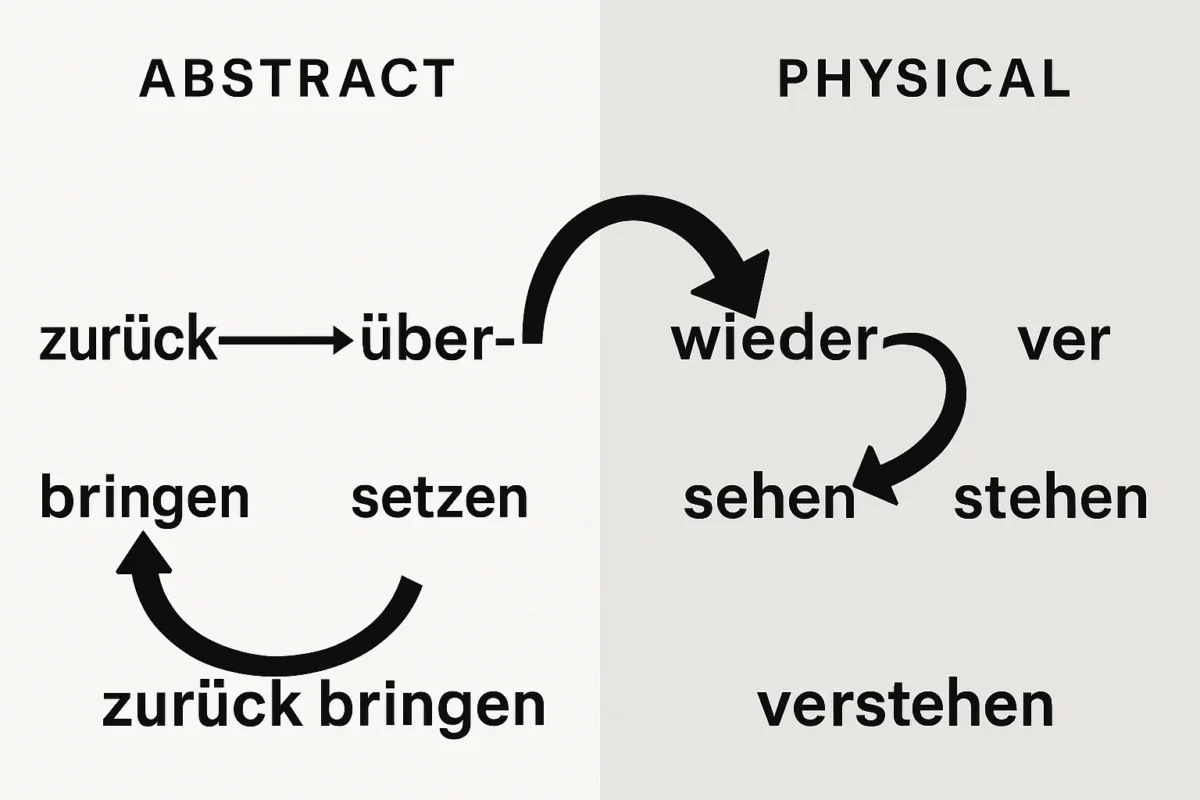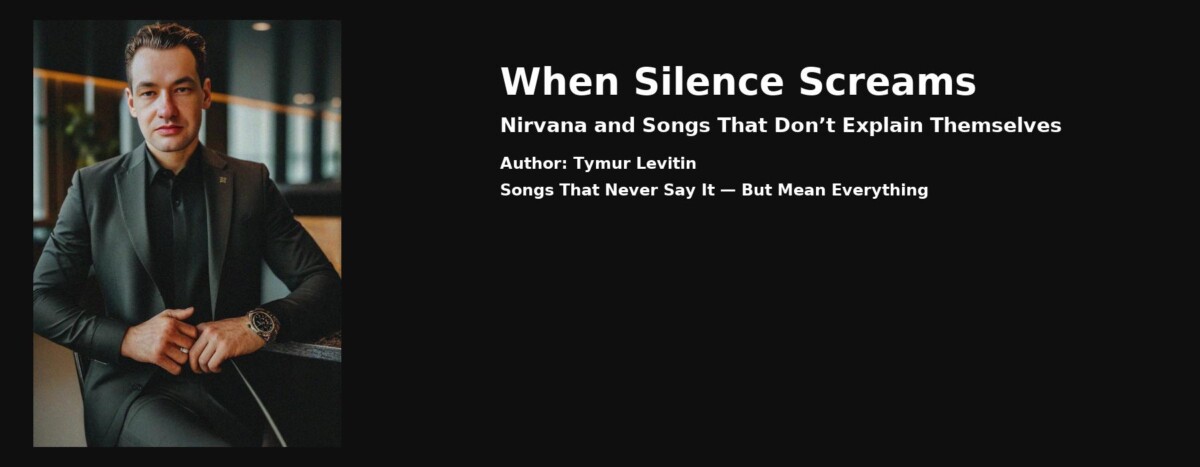Авторська колонка - Тимур Левітін
Виберіть свою мову
Чому відокремлювані та невідокремлювані префікси збивають учнів з пантелику
Німецькі дієслова з префіксами часто викладаються в сухих категоріях:
- "Ці префікси завжди відокремлюються".
- "Вони завжди нероздільні".
- "Ось список. Запам'ятай його."
Такий підхід зазвичай не спрацьовує. Він змушує студентів гадаю.не зрозуміти. Один і той самий префікс може поводитися по-різному - і раптом правила руйнуються.
Розглянемо два приклади:
- Відерзейн. - "побачити знову" → "побачити знову відокремлювані
- wiederholen - "повторити" → "повторити нерозлучні
Той самий префікс. А поведінка інша. Чому?
Кращий шлях: Спочатку слухати, а потім думати
Після 22 років викладання я покладаюся на двокомпонентну систему, яка завжди допомагає студентам:
🎧 Крок 1: Прислухайтеся до стресу.
Якщо стрес припадає на префікс → це відокремлювані.
Якщо стрес припадає на корінь → це нерозлучні.
🧠 Крок 2: Зрозумійте значення.
Якщо акція фізичний, спрямований → відокремлювані.
Якщо це абстрактний, ментальний або вербальний → нерозлучні.
Це не хитрість. Це те, як насправді поводиться мова - навіть якщо більшість підручників не пояснюють це таким чином.
Почуймо різницю
| Дієслово | Вимова | Це означає. | Роздільна? |
|---|---|---|---|
| ǘbersetzen | наголос на über | щоб переправитися через | Так. |
| übersétzen | наголос на Сетцен | перекласти | Ні. |
| wíederholen | наголос на wieder | щоб отримати | Так. |
| wiederhólen | наголос на Холен. | повторити | Ні. |
| úmfahren | наголос на гм | щоб переїхати | Так. |
| umfáhren | наголос на fahren (фр.) | їздити по окрузі. | Ні. |
Другий фільтр: Фізична дія проти ментальної
Тепер застосуємо логіку:
- Відерзейн. - "побачити знову" = фізична подія, можливо, з рухом → відокремлювані
→ Wir sehen uns morgen wieder. - wiederholen - "повторити" = вербальна дія, без руху → нерозлучні
→ Könnten Sie das bitte wiederholen? - übersetzen -
- переправа через кордон = фізичне переміщення → ǘbersetzen → відокремлювані
- перекладати = розумова обробка → übersétzen → нерозлучні
Різниця реальна і значуща.
Швидка таблиця: Як дізнатися
| Запитайте себе | Якщо "Так" → "Так". | Результат |
|---|---|---|
| Наголос на префікс? | ✅ | Відокремлювані |
| Чи означає дієслово рух у реальному світі? | ✅ | Відокремлювані |
| Дія абстрактна чи ментальна? | ✅ | Нерозлучні |
| Дієслово злите (немає чіткого префікса)? | ✅ | Нероздільні (наприклад, розуміти) |
А як щодо винятків?
Так, у Німеччині вони є.
Це не жорстка система. Завжди є виноска:
"und viele andere Fälle."
Але ось правда:
"Німецька - це не мова фіксованих таблиць. Це мова тенденцій - з багатьма "und viele andere Fälle.
Ось чому розуміння сенсу і ритму дає більше ясності, ніж запам'ятовування всіх можливих списків".
- Тимур Левітін
Чому я викладаю саме так
Я не прошу учнів вгадувати, чи є префікс відокремлюваним.
Я показую їм, як Послухайте. - і як це зробити подивіться на його логіку.
Граматичні правила важливі.
Але вивчення мови означає бачити закономірності - і довіряти своєму слуху.
Як тільки ви це зробите, вам більше не потрібно буде запам'ятовувати префікси.
Дізнатися більше
- Вивчайте німецьку разом з нами: https://levitinlanguageschool.com/studying-german-easy/
- Пов'язана стаття: Переосмислення німецького порядку слів: Причина ⇄ наслідок та два обличчя "Троцдема"
© Тимур Левітін - Засновник, директор та завуч
Levitin Language School / Стартова мовна школа Тимура Левітіна
Гасло: "Глобальне навчання. Персональний підхід".
🔷 Рубрика:
Теорія та практика перекладу / Пояснення граматики
🔗 https://levitinlanguageschool.com/translation-theory-and-practice/
























